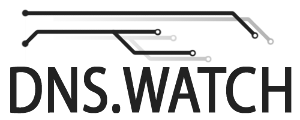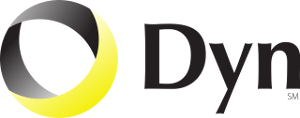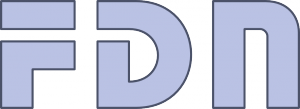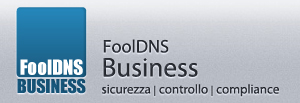20 Best Alternative DNS servers
These public DNS servers will help you protect your family or business, block ads, phishing and malware, improve your privacy... and speed up your web browsing!
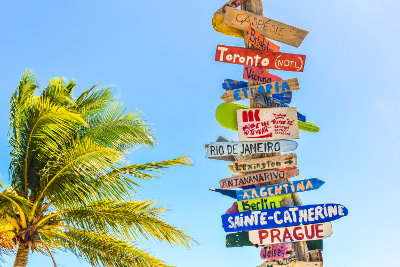
What is a DNS server?
The DNS or domain name system is a naming system used to translate domain names into IP addresses, that is, alphanumeric addresses into numeric addresses..
Domain names are easier to remember for humans and IP addresses are used by computers to establish connections between the user’s computers (client) and the computer that is serving the information (server).
These translations is a necessary step to establish connections in Internet.
Reasons to change your DNS configuration
1. Stability and speed
Some Internet service providers don’t have an stable and fast DNS service. In that case, navigating the Internet is slow and the users have problems establishing connections.
Usually, the DNS servers from your ISP are very fast and if you decide to change the DNS configuration for other reasons you should choose some other servers with a similar or smaller latency value.
The latency is the time it takes to send and receive a small information package between the user’s computer and the server. It’s measured in milliseconds and you can use a small program included in Windows called Ping to get the latency.
To run Ping you have to :
-
Open the Windows menu and select All programs.
-
Select Accessories and click on the Command prompt icon.
-
In the Command prompt window you have to type ping, followed by a space and the address that you wish to check. For example, “ping 4.2.2.2” (without quotes).
-
Press Enter and you’ll get the results. The last line shows the average time in milliseconds (latency).
2. Censorship
The translation of domain names into IP addresses sometimes is used to block contents for the following reasons :
-
The government considers that some contents are illegal for their citizens.
-
The local network manager considers that some contents are not appropriate for the users. For example, corporate or home networks.
Sometimes the users change the DNS configuration to bypass the censorship, sometimes to protect employees or family members from inappropriate or harmful contents.
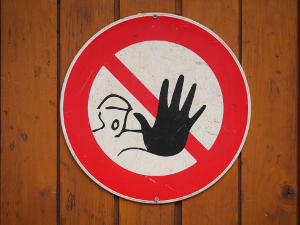
3. Content distribution networks (CDN)
Some content providers share the server workload by using several servers in different locations across the planet. These servers form what is called a CDN or content distribution network.
The users are not aware of using a content distribution network because all of them use the same domain address to access the service, but not all of them are connected to the same server.
One way to choose which server must be assigned to each user in a content distribution network is based in the DNS servers. Depending on the user’s DNS configuration, the same domain name will be translated into a different IP address corresponding to a server of the content distribution network.
In case the assigned server from a content distribution network is overloaded, it’s possible to get a different server with better performance by changing the DNS configuration.
On other occasions, you could access a different server from the same CDN with geographically locked contents.
4. Privacy
Some DNS service providers and Internet service providers log all the addresses visited by the users and then they share this private information with third parties.
5. Ad blocking
Some DNS service providers block all the addresses from hosts identified as ad servers.
6. Security
Some DNS service providers add some features that improve the security of the communications with their servers :
-
DNSSEC : Protects from some attacks but it doesn’t add confidentiality to the communications.
-
DNSCrypt : Encrypts the DNS traffic between the user and the server.
How to change the DNS configuration?
A) In Windows
Every time you boot your computer, it receives the DNS configuration from the DHCS server (your router most of the times). If you want to use a different set of DNS servers then you have to customize the Windows configuration.
In Windows 7 you have to follow these steps :
-
Open the Control panel.
-
Click on the Network and Internet icon.
-
Click on View network status and tasks.
-
Click on Change adapter settings.
-
Select the network adapter used to connect to the Internet, right click on its icon and select Properties.
-
Select Internet protocol version 4 and click on the Properties button.
-
Select Use the following DNS server addresses.
-
Copy the Preferred and alternative DNS server addresses just in case you want to go back to the previous configuration at a later time.
-
Type the new Preferred and alternative DNS server information.
-
Click on the OK button in the two properties windows.
In Windows 10 you have to follow these steps :
-
Open the Configuration.
-
Click on the Network and Internet icon.
-
Select Wi-Fi or Ethernet to the left.
-
Click on Change adapter settings to the right.
-
Select the network adapter used to connect to the Internet, right click on its icon and select Properties.
-
Select Internet protocol version 4 and click on the Properties button.
-
Select Use the following DNS server addresses.
-
Copy the Preferred and alternative DNS server addresses just in case you want to go back to the previous configuration at a later time.
-
Type the new Preferred and alternative DNS server information.
-
Click on the OK button in the two properties windows.
B) In the router
By setting a new DNS configuration in the router you are setting it in all devices connected to it when they boot. This can be useful when you wish to block inappropriate contents to all the users, to block ads in all devices, etc.
Every router brand and model has a different way to set the DNS configuration so it’s not possible to give all the step-by-step guides in this article.
Public DNS service providers
This is the list of public DNS service providers, in alphabetical order :
Comodo Secure DNS : Comodo is a multinational group of companies dedicated to security software products.
-
They log personal information in many of their services and they share it with partners and affiliates. It’s not clear what they log with the DNS service
 .
. -
They have multiple servers in 5 continents.
-
They block sites with malware, phishing or excessive ads.
-
DNS server addresses (IPv4) : 8.26.56.26, 8.20.247.20

DNS.Watch : This is a service provided by Ideal-Hosting and IAMONSYS GmbH.
-
No redirects to search engines when the address doesn’t exist.
-
No censorship.
-
No logging of any kind.
-
DNSSEC enabled.
-
DNS server addresses (IPv4) : 84.200.69.80, 84.200.70.40
-
DNS server addresses (IPv6) : 2001:1608:10:25::1c04:b12f, 2001:1608:10:25::9249:d69b

DNSReactor : This is a free service offered by VPNReactor which is dedicated to virtual private networks.

Dyn Internet Guide : Dyn is an Internet company dedicated to DNS and email services that was acquired by Oracle in 2016.
-
They log anonymous information and they may share it with affiliates and third parties
 . Their privacy policy will soon transition to the Oracle Privacy Policy
. Their privacy policy will soon transition to the Oracle Privacy Policy -
This service includes common domain type correction.
-
DNS server addresses (IPv4) : 216.146.35.35, 216.146.36.36

FDN : The French Data Network (FDN) is a French Internet service provider that allows access to their DNS servers to everyone.
-
No censorship.
-
DNS server addresses (IPv4) : 80.67.169.12, 80.67.169.40
-
DNS server addresses (IPv6) : 2001:910:800::12, 2001:910:800::40

FoolDNS : FoolDNS is a service from an Italian startup called TheFool which is dedicated to reputation management in Internet.
-
They block ads, phishing and malware sites.
-
They log anonymous information and they may share it with third parties
 .
. -
DNS server addresses (IPv4) : 87.118.111.215, 213.187.11.67

FreeDNS : This is a service offered by Virtexxa, an Internet company from Rumania.
-
No redirects to search engines when the address doesn’t exist.
-
No censorship.
-
No logging of any kind.
-
DNS server addresses (IPv4) : 37.235.1.174, 37.235.1.177

Freenom World : Freenom as a free and paid domain provider.
-
No redirects to ad pages when the address doesn’t exist.
-
Geographically dispersed servers.
-
They log private information with other services but they don’t share it with third parties. It’s not clear what they log with the DNS service but they say it’s anonymous
 .
. -
DNS server addresses (IPv4) : 80.80.80.80, 80.80.81.81

Google Public DNS : Google is a multinational technology company that offers many Internet services.
-
DNSSEC enabled.
-
Protection against security threats.
-
They log personal information from the users. They claim that they delete personal identifiable information after 48 hours and then they keep permanent anonymous logs
 .
. -
DNS server addresses (IPv4) : 8.8.8.8, 8.8.4.4
-
DNS server addresses (IPv6) : 2001:4860:4860::8888, 2001:4860:4860::8844

GreenTeamDNS : GreenTeam Internet is an Internet company from Israel.
-
They block phishing and malware sites.
-
DNS server addresses (IPv4) : 81.218.119.11, 209.88.198.133

Neustar DNS service : Neustar is a global information services provider.
-
They log personal information and they may share it with third parties
 .
. -
They block sites with phishing, malware, porn and other adult contents. They have 5 security levels.
-
DNS server addresses (IPv4) :
-
Reliability & Performance 1 : 156.154.70.1, 156.154.71.1
-
Reliability & Performance 2 : 156.154.70.5, 156.154.71.5
-
Threat Protection : 156.154.70.2, 156.154.71.2
-
Family Secure : 156.154.70.3, 156.154.71.3
-
Business Secure : 156.154.70.4, 156.154.71.4
-
-
DNS server addresses (IPv6) :
-
Reliability & Performance 1 : 2610:a1:1018::1, 2610:a1:1019::1
-
Reliability & Performance 2 : 2610:a1:1018::5, 2610:a1:1019::5
-
Threat Protection : 2610:a1:1018::2, 2610:a1:1019::2
-
Family Secure : 2610:a1:1018::3, 2610:a1:1019::3
-
Business Secure : 2610:a1:1018::4, 2610:a1:1019::4
-

OpenDNS : OpenDNS is a DNS services company that was acquired by Cisco in 2015.
-
They block sites with phishing and adult contents. More than 50 categories to filter contents.
-
They log personal information and they may share it with third parties
 .
. -
DNS server addresses (IPv4) : 208.67.222.123, 208.67.220.123

OpenNIC project : OpenNIC is a user owned network information center that gives an alternative to other domain registries like ICANN.
-
Multiple geographically dispersed servers.
-
Many of their servers don’t log any personal information.
-
No censorship. They respect net neutrality.
-
They can resolve the same domains that ICANN does in addition to other top level domains (TLDs) which are inaccessible from regular DNS servers.
-
DNS server addresses (IPv4) : (click on the OpenNIC logo)

puntCAT : This is a non-profit privately held foundation dedicated to sell domains.
-
Only one server in Barcelona.
-
DNSSEC enabled.
-
It’s not clear what kind of information they log with the DNS service but they claim that they don’t share it with third parties
 .
. -
DNS server address (IPv4) : 109.69.8.51

SafeDNS : SafeDNS is an Internet company that offers a DNS service with customizable filters for businesses and homes.
-
They block sites with phishing, malware and adult contents.
-
They log personal information and they may share it with affiliates for external processing
 .
. -
DNS server addresses (IPv4) : 195.46.39.39, 195.46.39.40

SmartViper Public DNS : SmartViper is a web mining company dedicated to analyze web pages. They let anyone use their DNS servers for free.
-
They log personal information with their website but it’s not clear what they log with their DNS service. They don’t share that information with third parties
 .
. -
DNS server addresses (IPv4) : 208.76.50.50, 208.76.51.51

UncensoredDNS : UncensoredDNS or CensurfriDNS is a free service offered by Thomas Steen Rasmussen.
-
Two servers located in Denmark.
-
No redirects to search engines when the address doesn’t exist.
-
No censorship.
-
No logging of any kind.
-
DNS server addresses (IPv4) : 91.239.100.100, 89.233.43.71
-
DNS server addresses (IPv6) : 2001:67c:28a4::, 2a01:3a0:53:53::

Verisign Public DNS : Verisign is an american Internet company that offers domains and security services.
-
No redirects to ad pages when the address doesn’t exist.
-
Protection against security threats.
-
They log personal information but they don’t share it with third parties
 .
. -
DNS server addresses (IPv4) : 64.6.64.6, 64.6.65.6

Yandex.DNS : Yandex is a Russian multinational technology company specializing in Internet-related services and products.
-
More than 80 geographically dispersed servers.
-
They log personal information and they may share it with affiliates
 .
. -
They block sites with phishing, malware and adult contents. They have 3 block modes.
-
DNS server addresses (IPv4) :
-
Mode 1 Basic : 77.88.8.8, 77.88.8.1
-
Mode 2 Safe – blocks malware and phishing : 77.88.8.88, 77.88.8.2
-
Mode 3 Family – blocks malware, phishing and adult contents : 77.88.8.7, 77.88.8.3
-

Other DNS servers
In the following web pages there are lists with other DNS servers.
In many cases, those servers aren’t part of a free public service. They are used internally by companies and organizations, and for some reason those servers are accessible from outside.
For that reason, the service provided by these servers may disappear at any time.
https://gist.github.com/roge-/e7d926a3b3551a0f3769
Article updated January 31st, 2019
Disclosure Statement: This site and BriskBard contains affiliate links, which means that I may receive a commision if you make a purchase using these links. As an eBay Partner, I earn from qualifying purchases.

